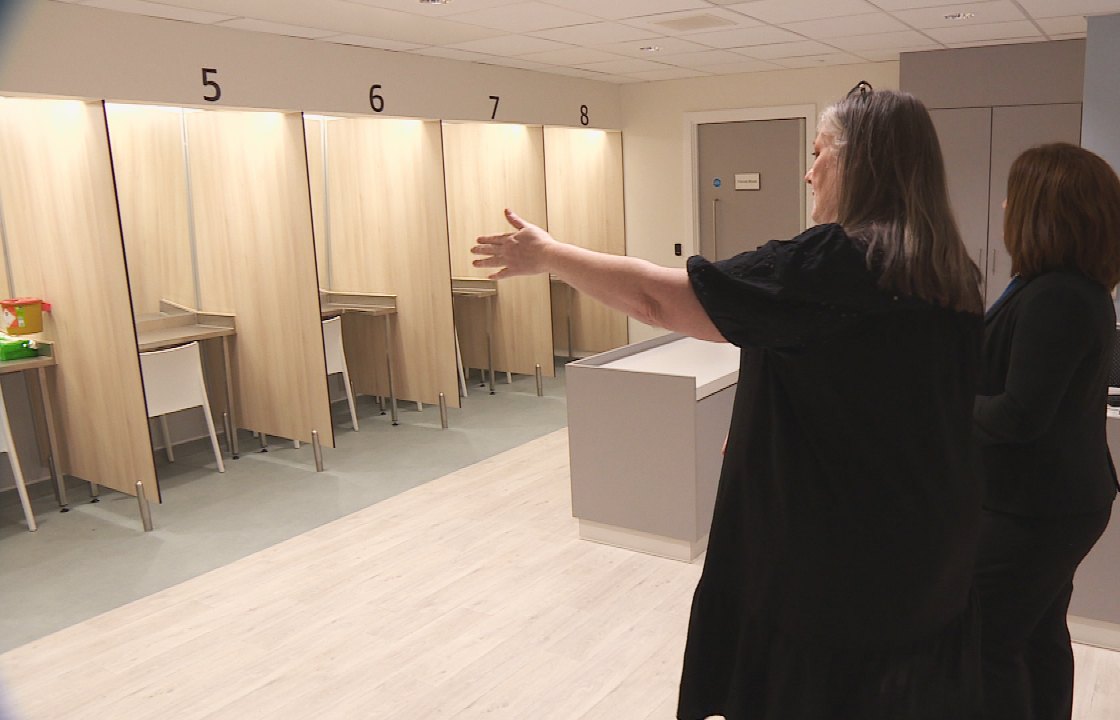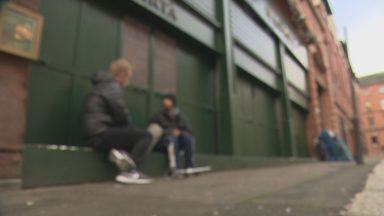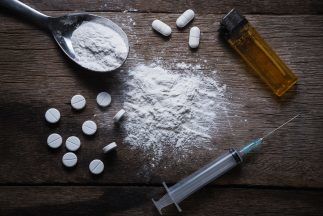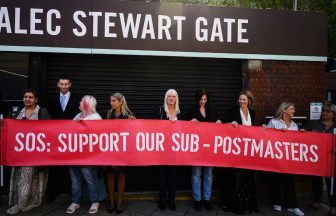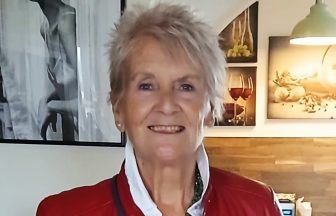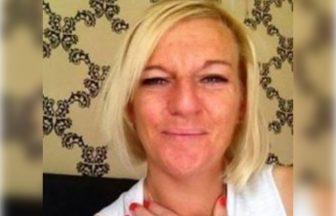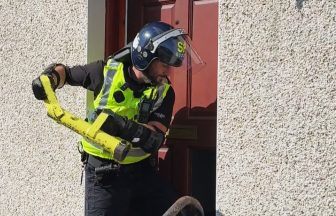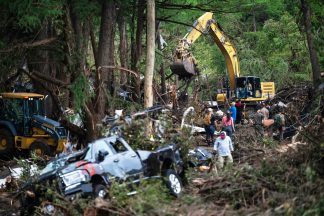Key Points
-
 For the first time in the UK, drug users will be able to take illegal substances under medical supervision
For the first time in the UK, drug users will be able to take illegal substances under medical supervision -
 The UK’s first drug consumption room will open in Glasgow on Monday
The UK’s first drug consumption room will open in Glasgow on Monday -
 Heroin and cocaine are the two main drugs that people will be injecting at the £2.3m facility
Heroin and cocaine are the two main drugs that people will be injecting at the £2.3m facility -
 Possession of drugs within the facility remains a criminal offence, but users inside will not be arrested
Possession of drugs within the facility remains a criminal offence, but users inside will not be arrested -
 Scotland is Europe’s drug deaths capital – there were 1,172 drug-related deaths in 2023
Scotland is Europe’s drug deaths capital – there were 1,172 drug-related deaths in 2023
Drug users will be allowed to take illegal substances under medical supervision for the first time when the UK’s only consumption room opens in Glasgow.
The £2.3m facility, located in a part of the city where drug use is rampant, will open on Monday ten years after it was first proposed.
Scotland is Europe’s drug deaths capital – 1,172 people died in 2023.
Campaigners say the facility, known as the Thistle, will be life-changing in tackling drug-related deaths, but opponents believe it is a waste of money and will condone or even encourage drug abuse.
The Lord Advocate Dorothy Bain, the Scottish Government’s chief lawyer, says it would not be in the public interest to prosecute people for simple possession offences when they are already in a place where help with their issues can be offered.
Therefore, possession of drugs within the facility will remain a criminal offence, but users taking them inside will not be arrested.
However, that does not apply to people making their way to and from the facility or anywhere else in the city. Drugs seized by police will not be returned to the individual.
“In diverting cases we aim to break cycles of harm and reduce the impact of crime on communities,” Bain said.
“I am satisfied that the Glasgow facility can provide a way for support services to engage with some of the most vulnerable people in society.
“All eyes are on Glasgow now… we need to make sure this works”
Councillor Allan Casey, head of addiction services at Glasgow City Council
“I understand that this policy may be a source of anxiety for some who live and work near the facility.
“The policy is very narrow and does not mean other offending will be tolerated. Supply offences are not included and Police Scotland will enforce these, and other crimes, as they always have.”
While the idea of a drug consumption room was first proposed in 2016 following an HIV outbreak in the city, its development was embroiled in years of political wrangling between the Scottish and UK governments.
It was hoped the facility could open last year, but final checks to the water and ventilation systems caused delays.
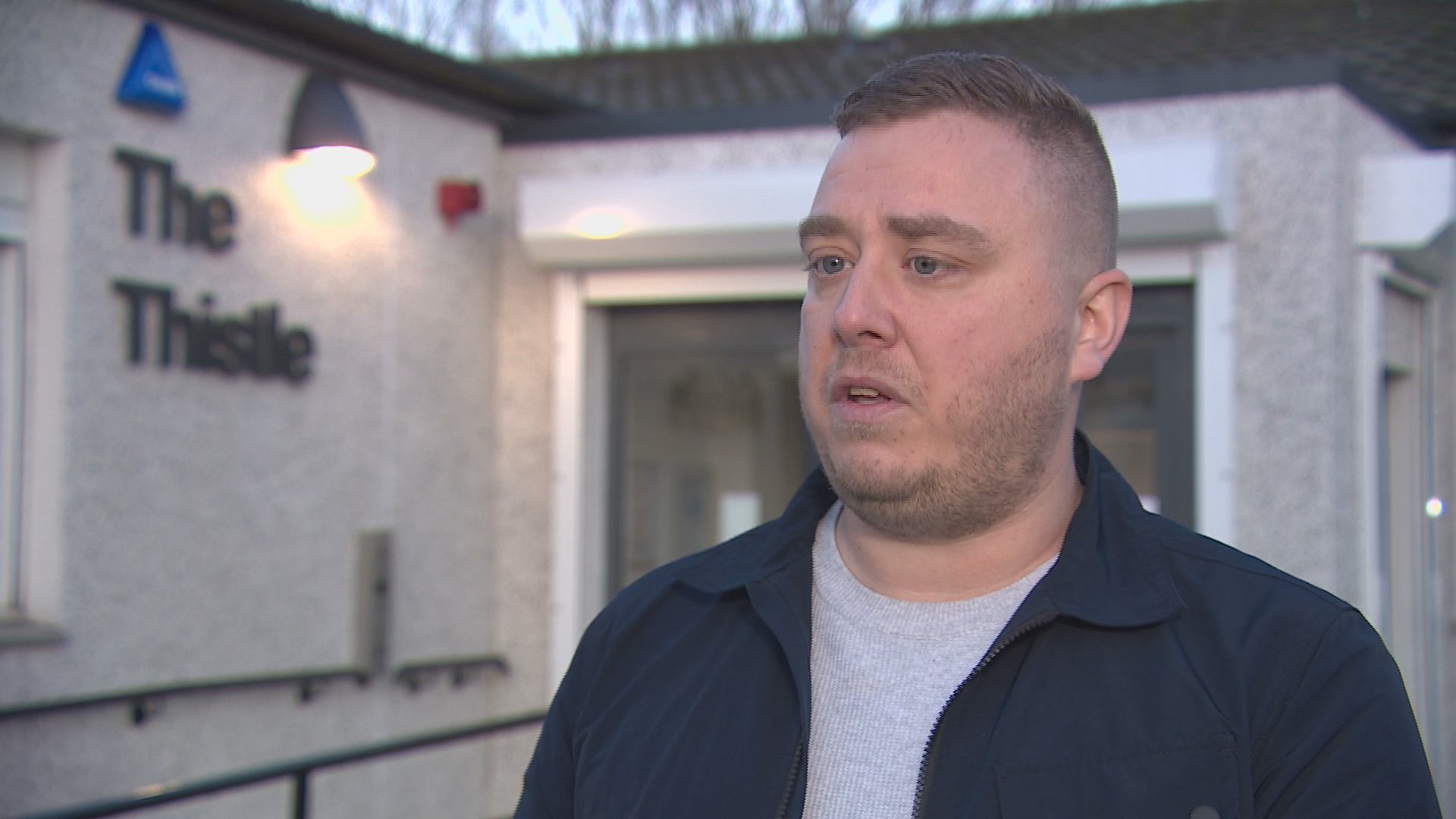 STV News
STV News“This has been almost a ten-year journey for some people,” said councillor Allan Casey, head of addiction services at Glasgow City Council.
“We are now finally in the position where we can open on Monday. This is really good news, first and foremost for the service users who have been waiting for this for a long time.”
“All eyes are on Glasgow now. We need to make sure this works and we can demonstrate that it actually will make a difference.
“We need to make sure we can turn around the drug death crisis.”
Councillor Casey said the Thistle wants to engage and build trust with people who are publicly injecting – those furthest from existing services.
“There is no evidence to suggest that an environment like this will encourage people to inject drugs”
Lynn Macdonald, service manager at the Thistle
“I know we are battling with money for services all across the city, but this facility will save lives,” he told STV News.
“You can’t put a price on that.
“There are over 100 safe drug consumption facilities across the world. We know they do save lives every single day. They reverse overdoses and so much more.
“They engage with service users to try and get them into recovery and offer support. We will also be doing that here which will hopefully turn people’s lives around.“
What happens when users arrive at the centre?
Lynn Macdonald, service manager at the Thistle, explained to STV News the procedure for users wishing to use the facility.
People will be buzzed in and welcomed by staff at reception, where they’ll have the option to have a private discussion with a member of staff about their plans that day – such as the drugs they plan to use and whether they want to utilise any other services.
“They don’t have to show us what drugs they are going to use,” said Ms Macdonald.
“We will ask them to tell us what they are planning to use so we can talk to them about harm reduction. In the using space, there will be nurses who will supervise injections.
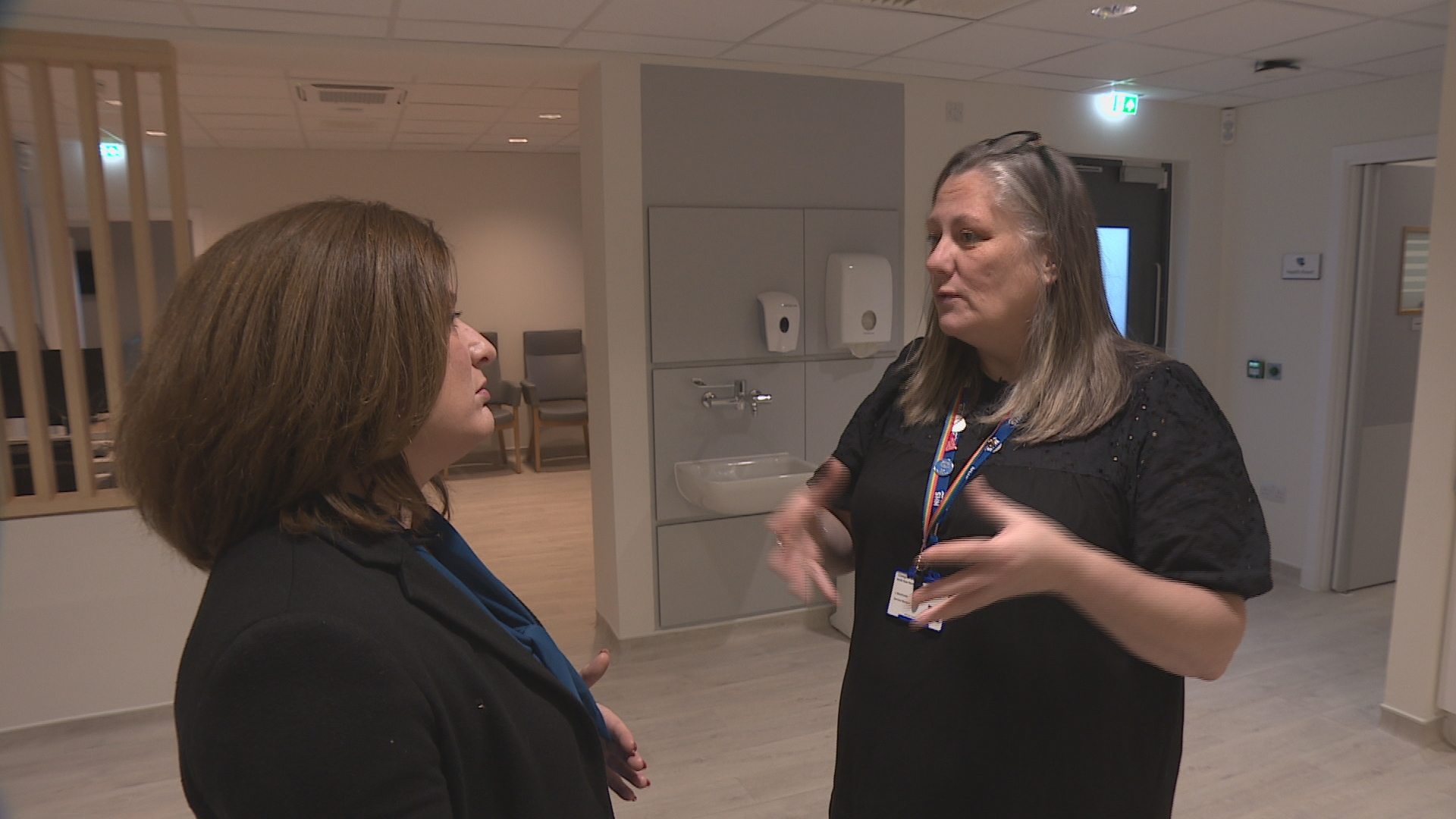 STV News
STV News“They’ll get clean equipment and we’ll speak to them about what needles they use, what syringes they use, and they’ll be given a clean supply of single-use equipment, which they’ll take over to whichever booth they have been allocated.
“They will be allocated one of the eight booths – some are wheelchair accessible. They’ll inject under supervision.
“Each booth has a mirror that is slightly tilted to allow us to observe the injection without being too close to the person. This also gives them a bit of dignity. That’s key to this service – that people are treated with respect and dignity when they come here. It’s somewhere where they will want to come back.“
Ms Macdonald says heroin and cocaine are the two main drugs that people will be injecting at the facility.
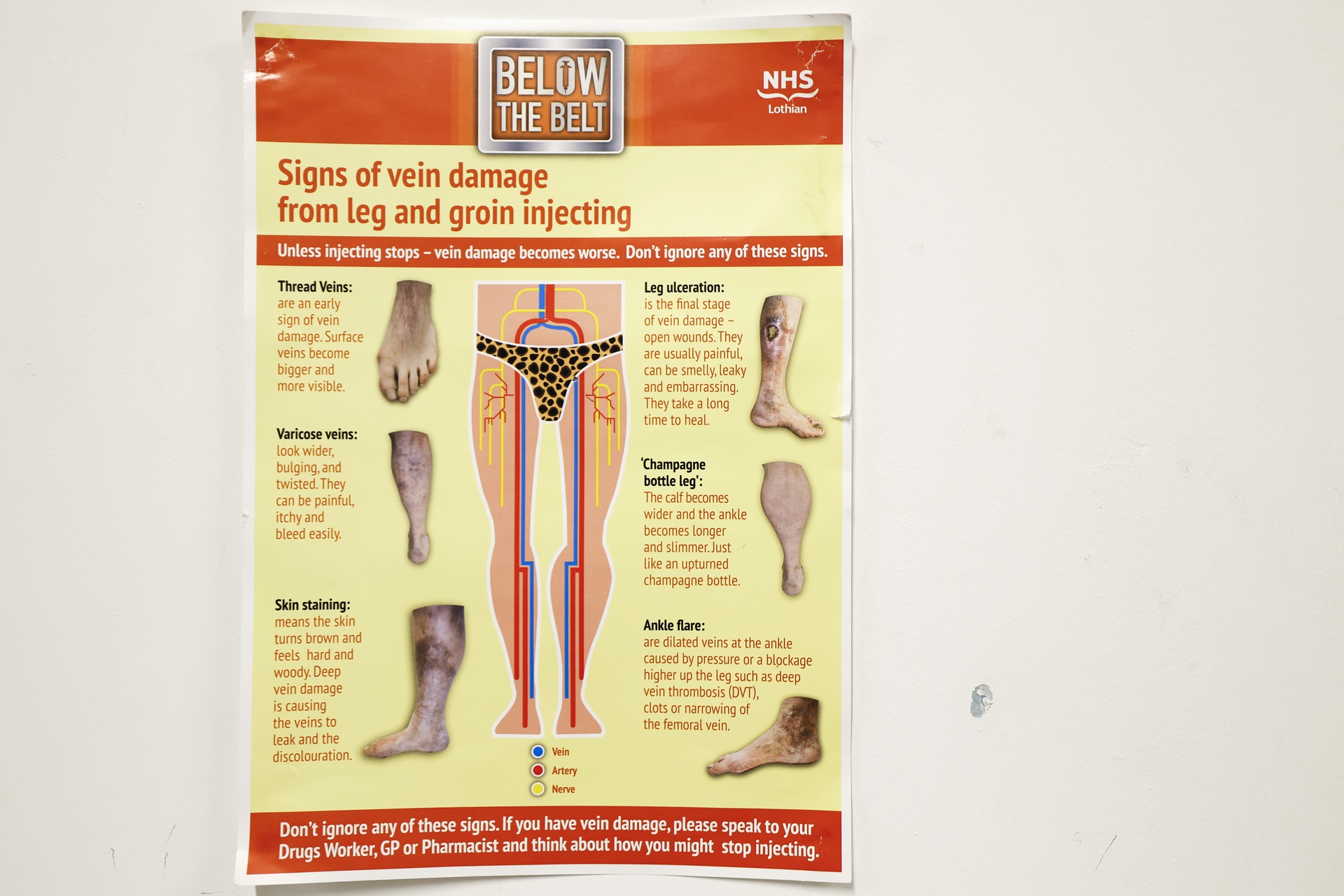 Getty Images
Getty ImagesShe said cocaine injection is on the rise in Glasgow and she expects to see some people using the service several times on the same day.
“I would say there is no evidence to suggest that an environment like this will encourage people to inject drugs,” she said.
“This is not a choice. People don’t wake up in the morning and think there’s a site down there, I’ll try that today.
“The people we will attract are generally known around Glasgow city centre by outreach staff, who may have dipped in and out of services. We know they will come here because it is warmer; it is more dignified than being down a lane.”
Plan to pilot drug-checking service at Hunter Street
Users will not be able to have their drugs checked by staff at the safe consumption facility.
Glasgow City Council has submitted an application to run a pilot of such a service.
Drug-checking enables people who use controlled substances to have them chemically analysed and receive information on their content.
Services are both confidential and anonymous.
In addition to providing information about what is in a drug sample, trained staff can offer harm reduction advice and support, brief interventions and access to treatment services.
‘I don’t think it will reduce drug deaths’
Using his personal experience, recovering addict Peter Krykant challenged politicians, the justice system, and the NHS with a converted ambulance at the heart of Glasgow’s injection hotspot.
He has welcomed the opening of the official drug consumption facility but believes some of the funding could be better spent elsewhere.
“What I’d like to see is somewhere not over-institutionalised and over-medicalised,” he said.
“We’ve got to look at the system overall. It’s estimated that 40% of those who could benefit from treatment are in any form of treatment, while the rest of the UK is around 70%.”
Scotland has had a higher drug death rate than other parts of the UK for the last decade. In 2022, the rate was almost three times higher than in England and Northern Ireland.
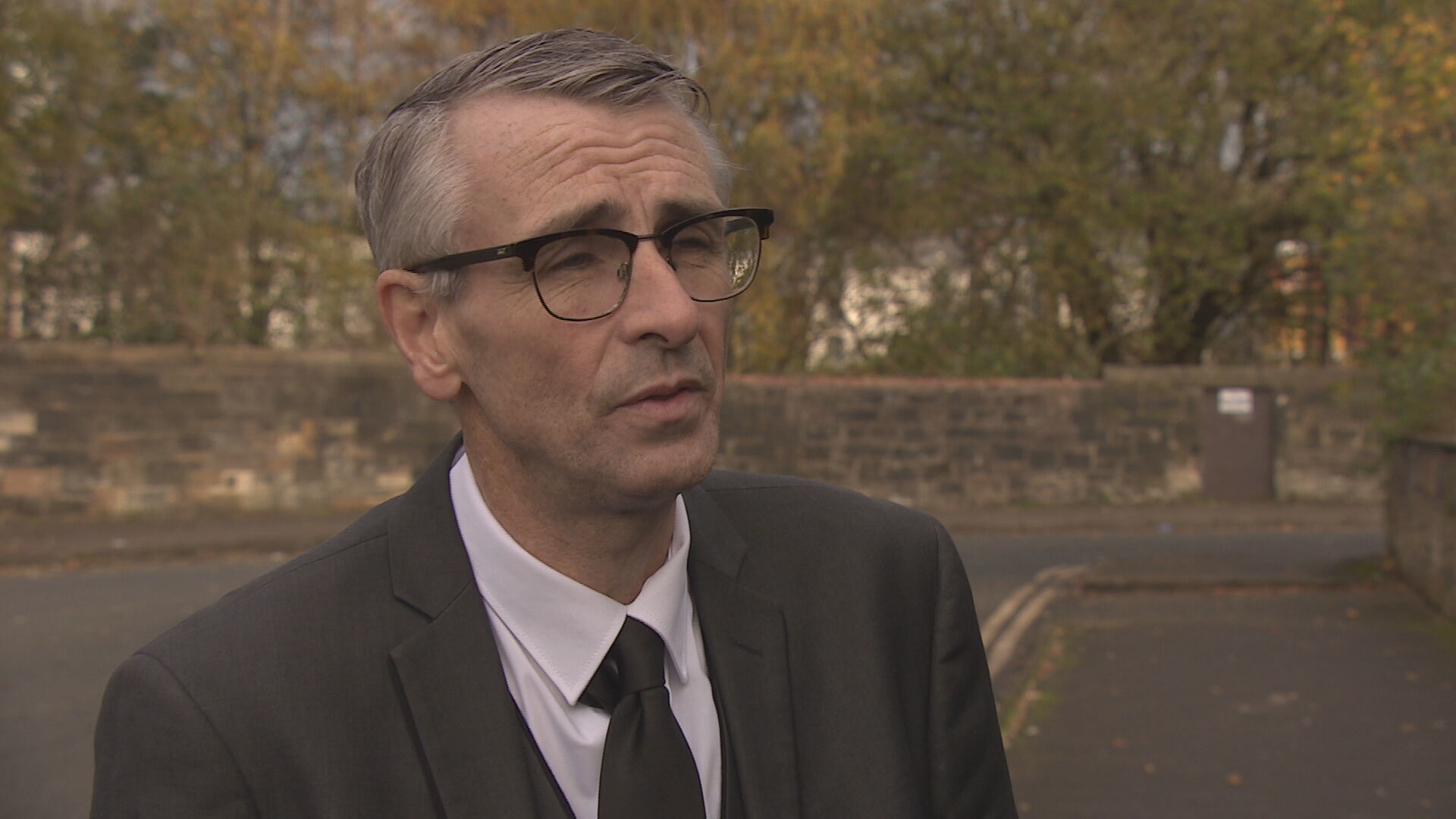 STV News
STV News“There’s something fundamentally wrong with how services are set up, designed, and delivered in Scotland,” Mr Krykant said.
“For me, that’s the over-medicalisation of these services.
“When we can run it at a fraction of the cost with people fully trained in harm reduction and overdose prevention, the simple reality is, why are we spending that amount of money?”
He added: “I don’t think it will reduce drug deaths. I would hope we would see less ambulance call-outs in the area, less bloodborne disease transmissions and less strain on NHS, with more people getting access to the health and welfare support they really need.”
View from NHS: Facility is better than the street
Dr Saket Priyadarshi, associate medical director for alcohol and drug recovery services at NHS Greater Glasgow and Clyde, said it has been a long and complicated process to open the Thistle.
“I’m delighted on Monday that we can open the service and offer a safer, warmer, well-lit, hygienic environment as an alternative to people using drugs on the streets,” he said.
“It is an environment where people will be offered a range of support they may need to help them to move on from problem drug use.”
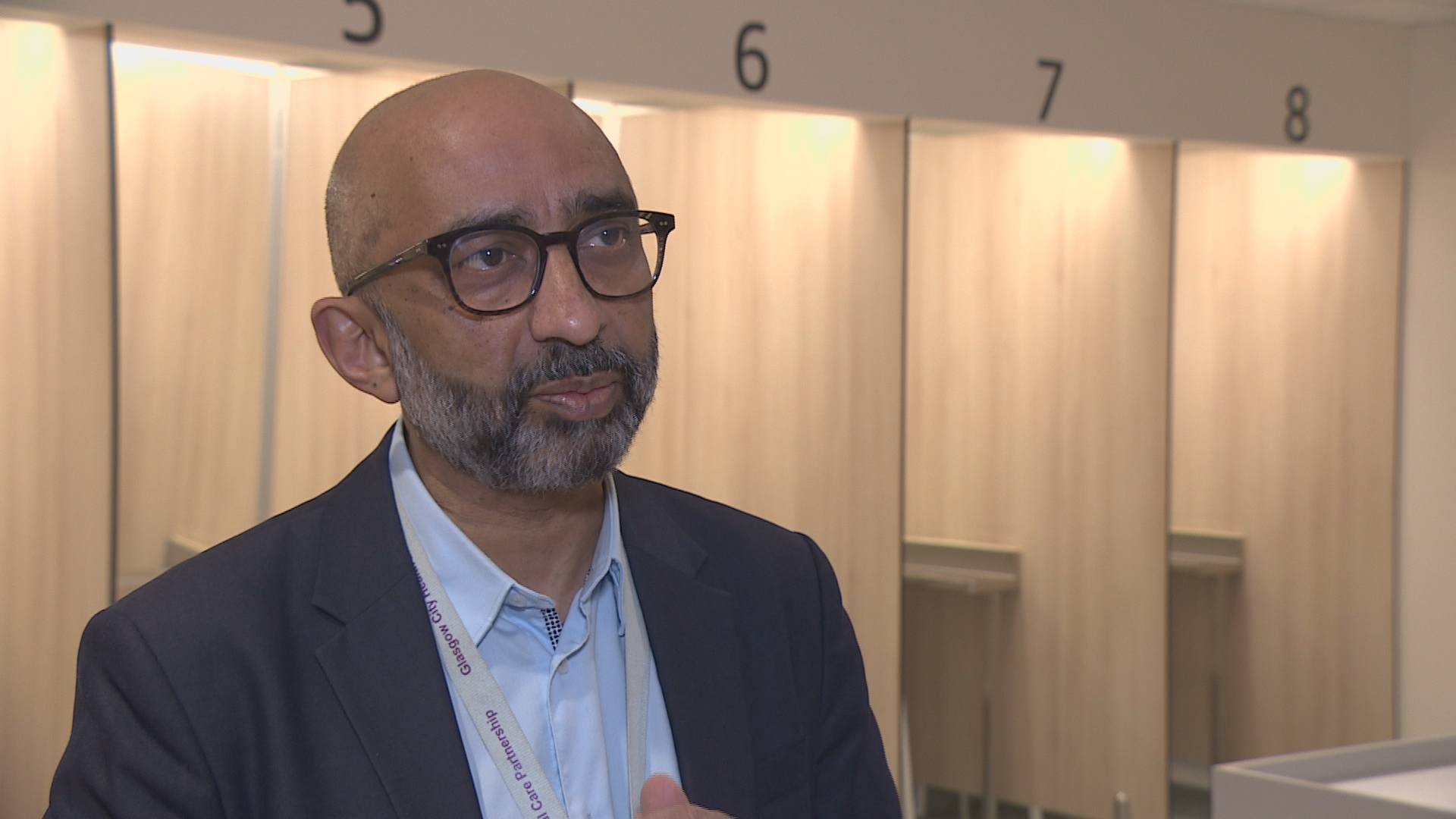 STV News
STV News“The key issue for people who use drugs is, ‘Will I be able to use this facility without fear of police involvement and any criminality against me?’
“What we have been able to agree with the Lord Advocate is that people can use this facility and use street drugs inside this facility without prosecution.
“It is very important that we’re able to convey that message to the people that we want to use this service and they can use this facility in confidence.
“It will take a period of time to build up that trust and build up that confidence so we get reach into that population that will accrue benefits for the community.
“Since we first proposed this service, there has been a shift towards more stimulant use in the city and increased use of synthetic opioids and new novel substances coming as well.
“That actually improves and increases the case for services like. With such dynamic and volatile drug trends, it would be better and safer for people who use drugs to use them in an environment such as this where there is support, information, and emergency response available rather than in streets, alleys, and alone in rooms.”
Suspected drug deaths still at high level in Scotland
New figures published by the Scottish Government in December showed 833 suspected drug deaths were recorded in the first nine months of 2024 – a reduction of 7% compared to the same period in 2023.
That came after 1,172 Scots died as a result of drugs in 2023 – with the figures for that year up by 121 from the previous year’s total.
However, the latest figures, based on data from Police Scotland on suspected drug deaths, showed that fatalities fell to the lowest rate for two years in the period July to September 2024.
In that quarter, there were 244 suspected drug deaths recorded – with this 9% less than in April to June and 19% down from July to September 2023.
The UK Home Office has been approached for comment.
Follow STV News on WhatsApp
Scan the QR code on your mobile device for all the latest news from around the country


